Related Research Articles
Prostitution in Hong Kong is itself legal, but organised prostitution is illegal, as there are laws against keeping a vice establishment, causing or procuring another to be a prostitute, living on the prostitution of others, or public solicitation.
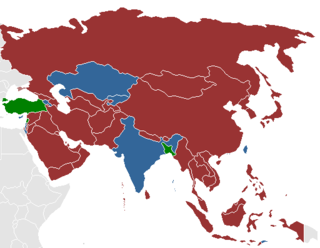
Prostitution is legal in India, but a number of related activities including soliciting, kerb crawling, owning or managing a brothel, prostitution in a hotel, child prostitution, pimping and pandering are illegal. There are, however, many brothels illegally operating in Indian cities including Mumbai, Delhi, Kolkata, Pune, and Nagpur, among others. UNAIDS estimate there were 657,829 prostitutes in the country as of 2016. Other unofficial estimates have calculated India has roughly 3 million prostitutes. India is widely regarded as having one of the world's largest commercial sex industry. It has emerged as a global hub of sex tourism, attracting sex tourists from wealthy countries. The sex industry in India is a multi-billion dollar one, and one of the fastest growing.
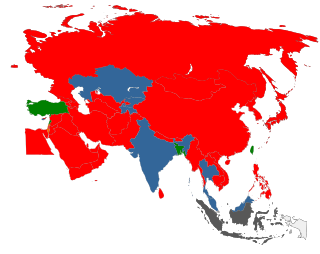
The legality of prostitution in Asia varies by country. There is often a significant difference in Asia between prostitution laws and the practice of prostitution. In 2011, the Asian Commission on AIDS estimated there were 10 million sex workers in Asia and 75 million male customers.
Prostitution in Singapore in itself is not illegal, but various prostitution-related activities are criminalized. This includes public solicitation, living on the earnings of a prostitute and maintaining a brothel. In practice, police unofficially tolerate and monitor a limited number of brothels. Prostitutes in such establishments are required to undergo periodic health checks and must carry a health card.
Prostitution in Senegal is legal and regulated. Senegal has the distinction of being one of the few countries in Africa to legalize prostitution, and the only one to legally regulate it. The only condition that it is done discreetly. Prostitution was first legalised in 1966. UNAIDS estimate that there are over 20,000 prostitutes in the country. The average age for a sex worker in Senegal is 28 years old and female.
Prostitution in Trinidad and Tobago is legal but related activities such as brothel keeping, soliciting and pimping are illegal.
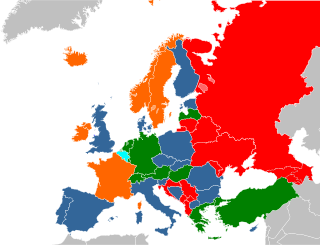
The legality of prostitution in Europe varies by country.
Prostitution in Bulgaria is itself legal, but organised prostitution brothels, prostitution rings, or other forms of procuring prostitution procuring are prohibited. In the past, the Bulgarian government considered fully legalising and regulating prostitution.
Prostitution in Lithuania is illegal, but it is common. Law enforcement is weak, corrupt and is reputedly connected to organised crime. It is estimated that there are 3,000 prostitutes in the capital Vilnius. Many prostitutes in Lithuania are foreigners, primarily from Russia, Belarus, and Ukraine. Street prostitution, including underage prostitutes, is generally controlled by criminal elements.

The legal status of prostitution in Africa varies widely. It is frequently common in practice, partially driven by the widespread poverty in many sub-Saharan African countries, and is one of the drivers for the prevalence of AIDS in Africa. Senegal and Côte d'Ivoire permit the operations of brothels. In other countries, prostitution may be legal, but brothels are not allowed to operate. In some countries where prostitution is illegal, the law is rarely enforced.
Prostitution in Turkmenistan is illegal but common. Prostitution has increased within the country since the collapse of the Soviet Union. Poverty is one of the reasons women have turned to prostitution, sometimes under pressure from family members.
Prostitution in Madagascar is legal, and common, especially in tourist areas. Related activities such as soliciting, procuring, living off the earnings of prostitution or keeping a brothel are prohibited. Public Order laws are also used against prostitutes. There are recent laws against "consorting with female prostitutes". People caught paying for sex with children under 14 can face criminal penalties of up to 10 years imprisonment. This is strictly enforced against foreign tourists. As well as in the tourist areas, prostitution also occurs around the mining towns of the interior such as Ilakaka and Andilamena. It was estimated that there were 167,443 sex workers in the country in 2014.
Prostitution in Botswana is not illegal, but laws such as public disorder, vagrancy, loitering and state recognised religious provisions are used to prosecute prostitutes. Related activities such as soliciting and brothel keeping are illegal. Botswana has made proposals to make prostitution legal to prevent the spread of AIDS. However, there has been mass opposition to it by the Catholic Church. Prostitution is widespread and takes place on the street, bars, hotels, brothels and the cabs of long-distance trucks.
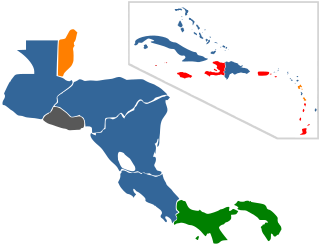
Legality of prostitution in the Americas varies by country. Most countries only legalized prostitution, with the act of exchanging money for sexual services legal. The level of enforcement varies by country. One country, the United States, is unique as legality of prostitution is not the responsibility of the federal government, but rather state, territorial, and federal district's responsibility.
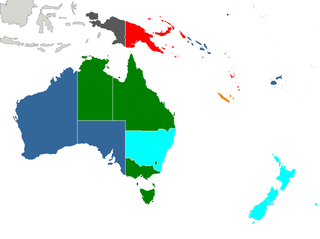
Prostitution in Oceania varies greatly across the region. In American Samoa, for instance, prostitution is illegal, whereas in New Zealand most aspects of the trade are decriminalised.
Prostitution in Fiji is legal, but most activities connected with it are illegal: brothel keeping, pimping and buying or selling sex in public. Street workers make up the bulk of Fiji's prostitutes. Many of the prostitutes are Asian, especially Chinese that provide sexual services for the growing number of tourists arriving in the country and also locals. Some come into the country on student visas. In 2014, it was estimated that there were 857 sex workers in Fiji. Even though buying and selling sex in public is illegal in Fiji, police have no legal authority to arrest prostitutes without an official report being lodged for the police to take action.
The British Overseas Territories (BOT) or alternatively, United Kingdom Overseas Territories (UKOTs), are 14 territories under the jurisdiction and sovereignty of the United Kingdom. They are the parts of the British Empire that have not been granted independence or have voted to remain British territories. These territories do not form part of the United Kingdom. Most of the inhabited territories are internally self-governing, with the UK retaining responsibility for defence and foreign relations. The rest are either uninhabited or have a transitory population of military or scientific personnel.

Cannabis is illegal in Samoa.
Vui Clarence Joseph Nelson is a Samoan judge. He sits on the Supreme Court of Samoa, and was the first Pacific Islands judge appointed to the United Nations Committee on the Rights of the Child.
The Samoa Land Corporation is a government-owned company based in Samoa. The corporation was established in 1990 to divest 24,000 acres (9,700 ha) of land previously owned by the Western Samoa Trust Estates Corporation on a commercial basis to generate revenue for the government. The corporation is structured as a company under the Companies Act 1955.
References
- ↑ "The Legal Status of Prostitution by Country". ChartsBin. Retrieved 8 February 2018.
- 1 2 "Having safe sex in Samoa : Prostitution in Samoa | Travel the fire". Travel the fire!. 28 August 2017. Retrieved 8 February 2018.
- ↑ "Prostitution On The Rise In Samoa". Pacific Islands Report. 30 November 2009.
- ↑ Mata'afa Keni Lesa (4 May 2017). "Sex workers and frightening truth about Samoa today". Samoa Observer.
- 1 2 Feagaimaali’i, Joyetter (27 August 2017). "Report owns up to existence of Samoa's sex workers". Samoa Observer. Retrieved 8 February 2018.
- ↑ Ilia L. Likou (February 2017). "Prostitution rumour rejected". Samoa Observer.
- ↑ "Samoa MP calls for end to prostitution". Radio New Zealand News. 27 September 2017.
- 1 2 "Crimes Act 2013" (PDF). Parliament of Samoa. Retrieved 8 February 2018.
- ↑ Joyetter Feagaimaali’i-Luamanu (8 May 2017). "Police point to the law". Samoan Observer.
- 1 2 3 4 5 Shankman, Paul. "The Journal Of The Polynesian Society Volume 110 Contents, P I-ivINTERETHNIC UNIONS AND THE REGULATION OF SEX IN COLONIAL SAMOA, 1830-1945". Journal of the Polynesian Society. Retrieved 8 February 2018.
- ↑ Steinmetz, George (2008). The Devil's Handwriting: Precoloniality and the German Colonial State in Qingdao, Samoa, and Southwest Africa. University of Chicago Press. ISBN 9780226772448.
- ↑ Colley, Ann C. (2017). Robert Louis Stevenson and the Colonial Imagination. Routledge. ISBN 9781351902779.
- ↑ "Samoa 2016 Human Rights Report" (PDF). US Department of State. Retrieved 8 February 2018.
 This article incorporates text from this source, which is in the public domain .
This article incorporates text from this source, which is in the public domain .